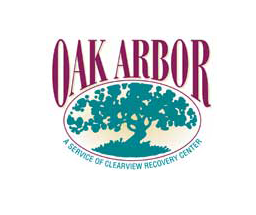Seniors and Addiction: Frequently Asked Questions
- By Admin
- •
- 08 Jun, 2021
- •

Senior citizens often have to contend with a wide range of physical, mental, and emotional ailments. Unfortunately, these challenges sometimes include substance abuse and chemical dependency. Substance use disorders affect nearly one million Americans aged 65 or older.
Whether you serve as a caregiver for an elderly loved one or simply feel concern for that person's well-being, it pays to understand the issue of addiction in seniors, as well as the potential approaches to treatment of this common challenge. Check out the answers to these frequently asked questions.
Why Do Seniors Face Elevated Risks for Addiction?
Seniors can easily develop a dependency on the same drugs they rely on for chronic pain. Chronic pain disorders such as arthritis frequently plague older people. Severe chronic pain may prompt doctors to prescribe opioid medications, which can prove highly addictive and may demand ever-increasing doses.
Benzodiazepines also present an addiction risk for the geriatric population. Seniors may depend on these prescription drugs to cope with insomnia, chronic pain, or anxiety disorders. The number of seniors addicted to these drugs continues to rise from one year to the next.
Not every drug that poses addiction risk for seniors comes with a doctor's prescription. Many seniors abuse or develop a dependence on marijuana, regardless of whether a doctor prescribed it for medical uses. However, alcohol remains the commonly abused addictive substance among seniors.
Seniors may abuse non-prescription substances in an effort to self-medicate either physical or emotional pain. Emotional triggers that may cause seniors to abuse alcohol and drugs include loneliness, the loss of a spouse, the stress of relocation to a nursing home, post-retirement boredom, and financial pressures.
What Impact Do Drugs and Alcohol Have on Senior Health?
As harmful as drugs and alcohol can prove for individuals of any age, these substances can create even more trouble for seniors. Beyond the age of 65, even a healthy body starts to lose its ability to metabolize substances quickly and easily. This impairment can permit substances to accumulate in dangerous amounts.
Even at lower levels, alcohol and drugs can have exaggerated effects on seniors' bodies and brains. These substances may make preexisting medical problems worse, including heart disease, lung function problems, mood disorders, or cognitive issues such as dementia.
How Can You Recognize Possible Substance Abuse in Seniors?
You may find it difficult to tell the difference between the signs of a substance abuse problem and other health conditions or age-related limitations affecting a senior loved one. For example, mental confusion may indicate drug abuse or simple dementia, while bruises may point toward intoxication or age-related balance problems.
Despite these ambiguities, sudden or extreme changes in your senior loved one's health or behavior may signal a chemical abuse problem. Examples might include intermittent memory loss, insistence on drinking or taking medication in privacy, a sudden lack of interest in favorite activities, and frequent requests for prescription refills.
What Treatment Strategies Can Prove Helpful for Addicted Seniors?
Fortunately, the same established addiction treatment strategies that work for the general population can also work well for seniors. In addition to traditional twelve-step treatment, a senior's treatment program may include individual, group, and vocational therapy, as well as support for other age-related problems that require attention.
One possible difference between addiction treatment for seniors and the same treatment for other individuals lies in the length and nature of the patient's stay. Seniors seem to enjoy better results from a more intensive, long-term approach to treatment, as opposed to short-term or outpatient care.
If an older loved one in your life appears to struggle with substance abuse or addiction, Oak Arbor can provide the necessary diagnosis and treatment options to turn that person's life and health around. Contact us today for more answers to your questions or to schedule a preliminary consultation.





